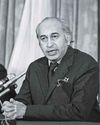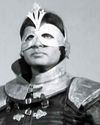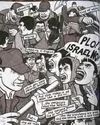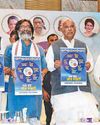
GROWING up in the small town of Jhansi, Uttar Pradesh, in the 1990s and the early 2000s, 23-year-old Bilal Khan taught himself English mainly through American television shows and the occasional Hollywood film on the cable network. In school, he would have laughed if someone had told him that he would go on to pursue English honours in college and pursue 'culture studies'. Back when he was growing up, he had no conception of these fields of education. "It was either science or commerce," Bilal laughs.
The Christ University alumnus now recalls that in those days, not many bright kids opted for 'arts'. When it came to choosing a stream after passing his 10th, Bilal's options were clear. He didn't even think about opting for 'humanities'. "In my state, 'arts' is not something young men are taught to aspire for. I grew up believing, like most other boys, that there is no future in studying arts. In fact, most schools in Jhansi at the time did not even offer humanities stream in Class 11 or 12," recalls Bilal.
He adds that it's not just about the purportedly limited career options available to students of humanities, but the sheer sexism of it that kept him and several other boys at bay. "The gendering of subjects is a very real phenomenon. Arts and humanities are seen as more "emotional" subjects. So poetry, literature is feminine and a man who expresses his feelings is feminine too," Bilal adds.
The 'Alice in Wonderland' Effect
Across small towns of India like Jhansi and indeed even in urban metropolitans, "arts' suffers similar biases: "It's easy", "it's for women", "it has no future". Bilal feels that the discrimination stems from the low employability of these subjects. It isn't just India, but across the world. Social sciences and liberal arts are often seen as the refuge of the "romantic scholar", one whose contribution to society is noted, but not necessarily needed.
Bu hikaye Outlook dergisinin July 11, 2023 sayısından alınmıştır.
Start your 7-day Magzter GOLD free trial to access thousands of curated premium stories, and 9,000+ magazines and newspapers.
Already a subscriber ? Giriş Yap
Bu hikaye Outlook dergisinin July 11, 2023 sayısından alınmıştır.
Start your 7-day Magzter GOLD free trial to access thousands of curated premium stories, and 9,000+ magazines and newspapers.
Already a subscriber? Giriş Yap

Trump, Up And Charging
'Many countries are nervous about Donald Trump returning to power, but India is not one of them'

Post and Past the Oil in Azerbaijan
As the UN climate conference takes place in Baku, Azerbaijan traces the history of the hydrocarbon industry through the lens of postage stamps

Bhutto's Nehru Story
Nehru's principle of \"compromise and argument\" remains the only workable formula for South Asian leaders

Breathless on Bachchan
Cédric Dupire's documentary The Real Superstar is an irreverent, experimental archive of Amitabh Bachchan's life and his stardom

The Anaphora to Zeugma of the Queen's English
Shashi Tharoor's book is a logophile's candy shop, full of fun, surprises and insights

The Wind Knocked
THE wind knocked on the door. Hesitantly. Wanting to be let in. It had heard the murmuring of the flames. And knew that there was a fire. The wind sought shelter.

The Way Home
“We comfort ourselves by reliving memories of protection. Something closed must retain our memories, while leaving them their original value as images. Memories of the outside world will never have the same tonality as those of home and, by recalling these memories, we add to our store of dreams; we are never real historians, but always near poets, and our emotion is perhaps nothing but an expression of a poetry that was lost.”—Gaston Bachelard, The Poetics of Space

The War Artist
Cartoonist and journalist Joe Sacco is in search of the truths distorted by conventional narratives

Mining Adivasi Votes
If the BJP manages to win Jharkhand, it will be the third mineral-rich state after Odisha and Chhattisgarh that will fall into the party's kitty

Unequal Republic
Political parties make promises of equal represention to women, but patriarchy continues to dominate electoral democracy